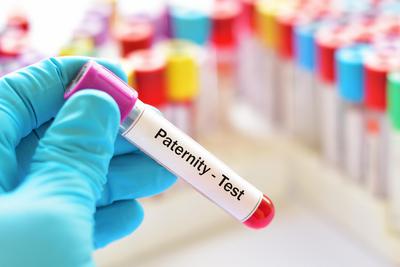The Crazy Side of DNA Testing: A Case of Mistaken Identity
Working at a DNA testing company, you quickly learn that no two days—or callers—are the same. Our team handles sensitive cases with empathy and professionalism, whether it's a court-admissible paternity test or a discreet at-home kit. But occasionally, a case comes along that truly pushes the boundaries of imagination—and anatomy.
Listen to article

The Call We Weren't Expecting
One of our call center representatives once received an unusual request. At first, it sounded like a prank. A man called in, sincerely convinced that his genitals had been surgically swapped as a child. He believed that what he had now wasn't his—and he wanted a DNA test to prove it.
His reasoning? According to him, the size just didn't seem quite right.
He asked to submit his pubic hairs and compare them to a cheek swab, fully expecting the DNA to reveal two different individuals. He believed this would confirm his theory that someone else's anatomy had been grafted onto him. As strange as the story sounded, he was serious. And to his credit, the logic wasn't entirely wrong.
What DNA Testing Can (and Can't) Do
This unique case shows how much misconception and misinformation there is about DNA testing. So, what does DNA testing actually involve, and what can and can't it prove?
-
Yes, we can test different biological samples—cheek cells, hair, blood, etc.—as long as they contain viable DNA.
-
Yes, we can determine if two samples come from the same individual.
-
Yes, DNA testing can sometimes confirm if a body part has been "replaced" by another donor.
While organ and tissue transplants often go undetected in terms of genetic identity, DNA testing can sometimes reveal whether a body part has come from a different donor. This is particularly relevant in forensic investigations or medical evaluations where genetic discrepancies arise. Research shows that although immunosuppressive drugs help the body accept transplanted tissue, some cells from the donor can remain and be identified through genetic testing.
When someone receives an organ transplant (like a kidney or liver), they also receive cells containing the donor's DNA. Sometimes, these donor cells don't just stay in the transplanted organ—they can migrate into the recipient's bloodstream, bone marrow, or other tissues and begin living there. This mix of genetically distinct cells is called chimerism, named after the mythical Chimera, a creature made of parts from different animals. Chimerism can sometimes complicate DNA testing, especially in forensic or paternity cases, because different tissues might show different genetic profiles.
DNA Doesn't Lie, Even When the Story Sounds Unreal
In our field, we see the human side of science every day. People come to us with serious questions about their identity, family, and personal history. Sometimes, those questions are driven by trauma, long-held suspicion, or misinformation.
While this particular case might raise eyebrows, it reminds us how much trust people place in DNA testing to help them uncover the truth, whatever that may be. From standard paternity testing to post-mortem DNA tests or even unusual cases like this one, our mission remains the same: to provide clear, science-based answers without judgment.
Health Street Is Here to Help
At the end of the day, we've probably heard it all. But no matter how unusual a case may sound, if someone is searching for answers, Health Street is here to help. Whether you're dealing with a straightforward paternity test or something a bit more complex, we offer accurate, confidential DNA testing you can trust. If you have questions only DNA can answer, contact us—we're ready to support you every step of the way.





